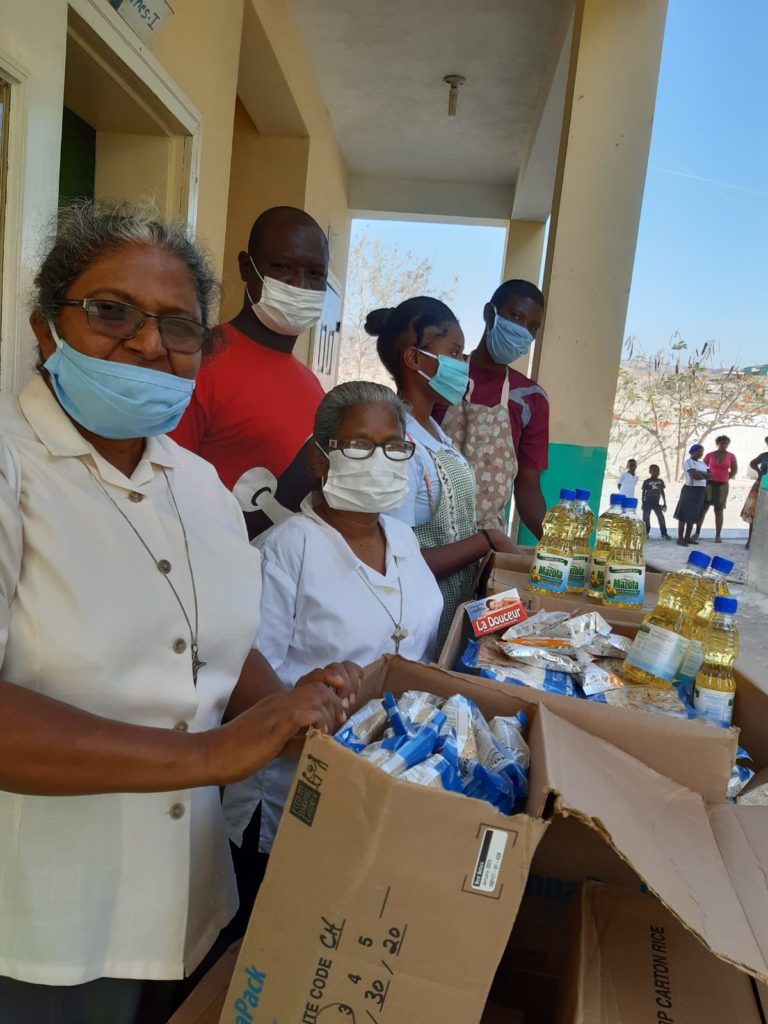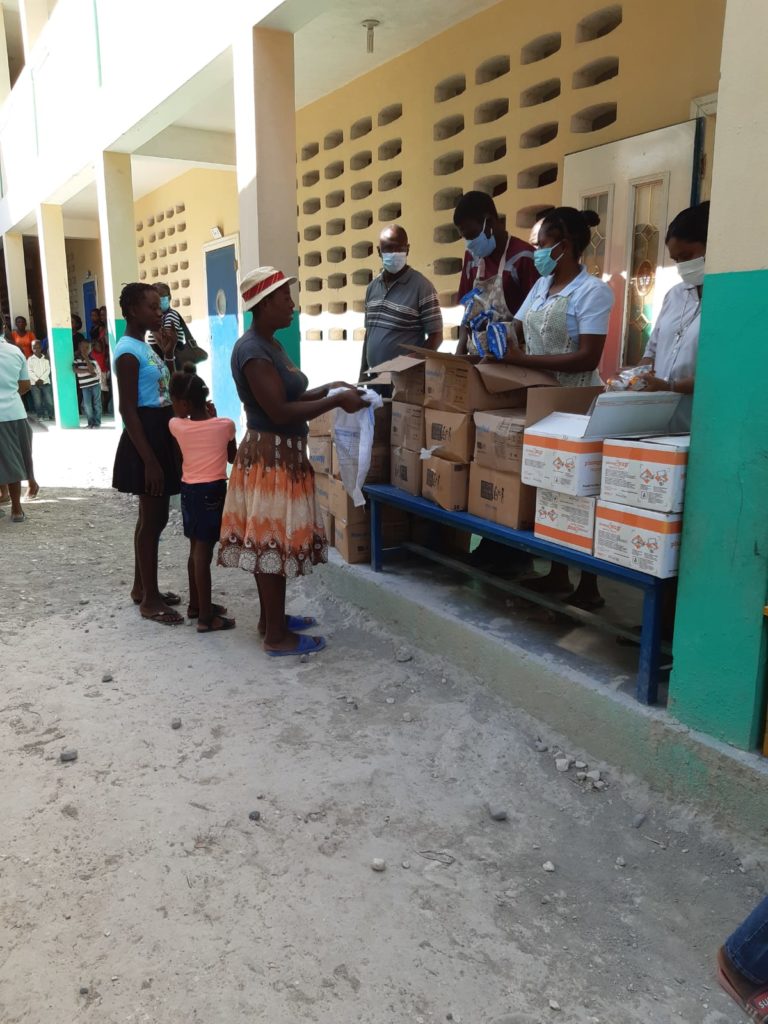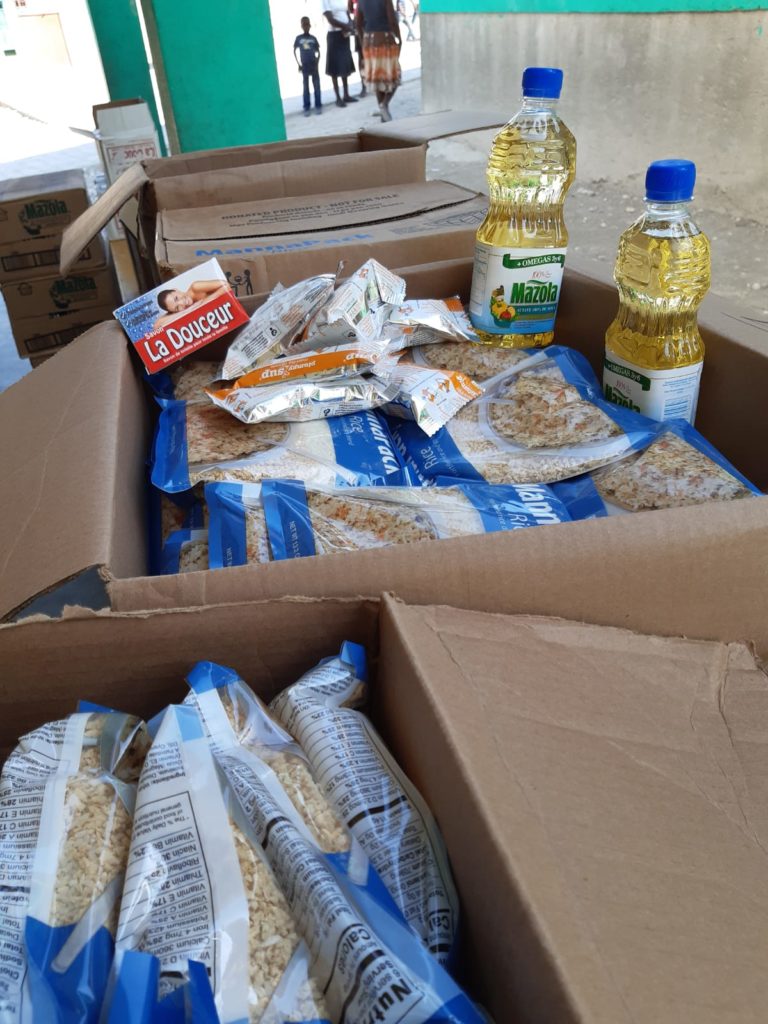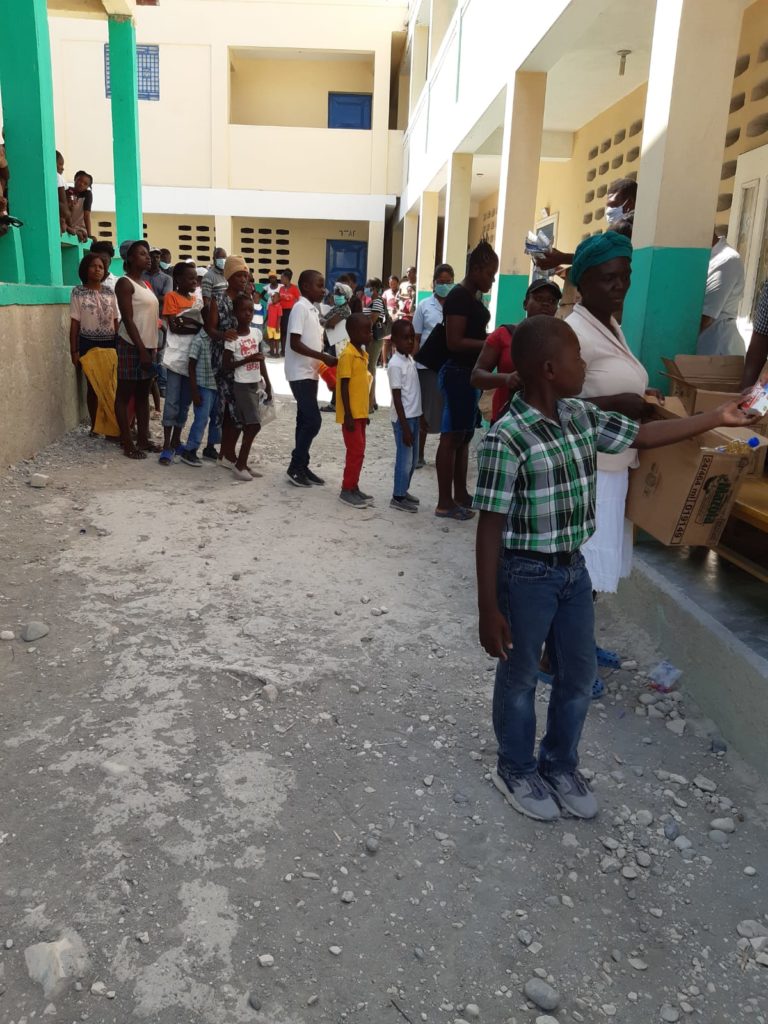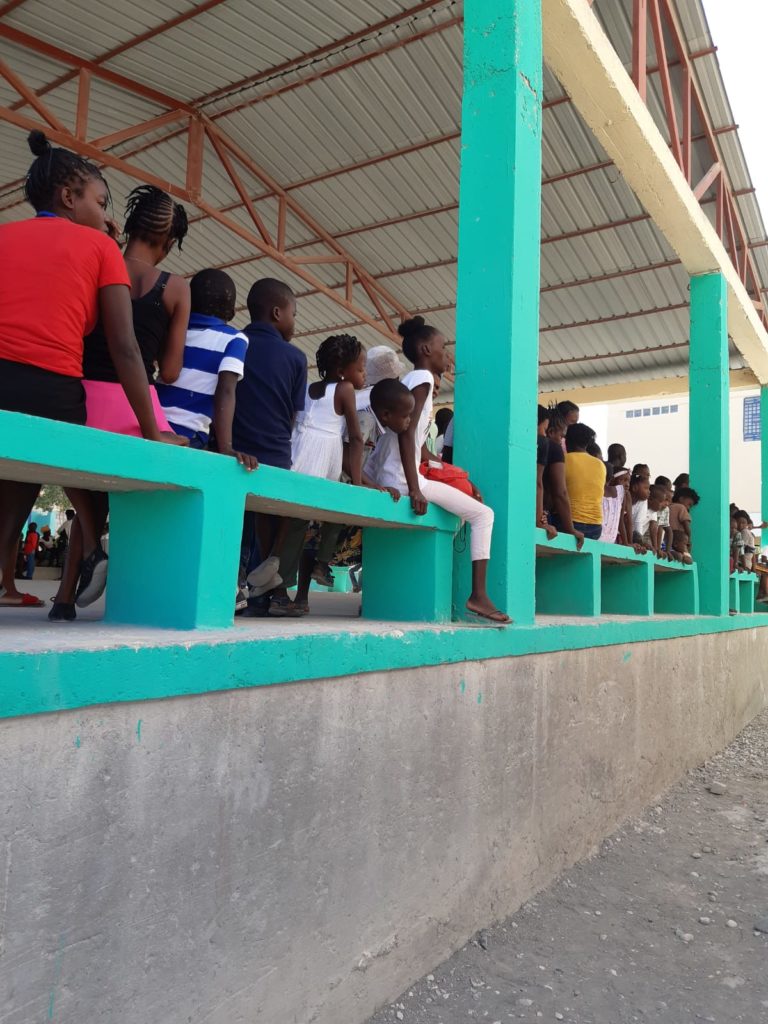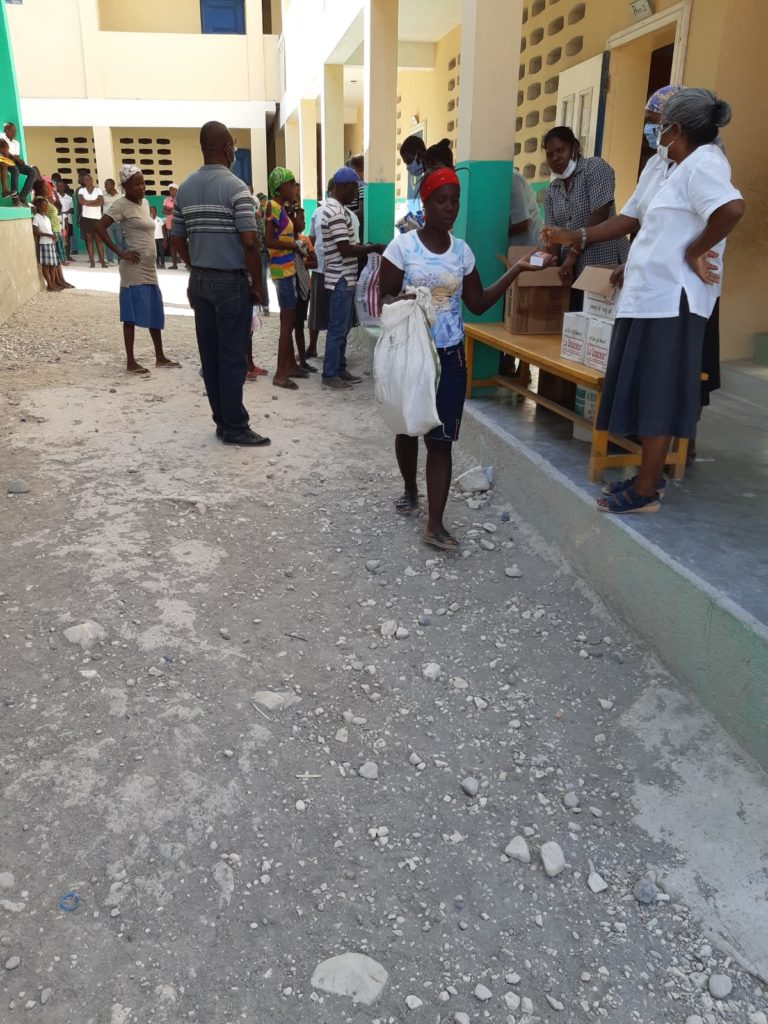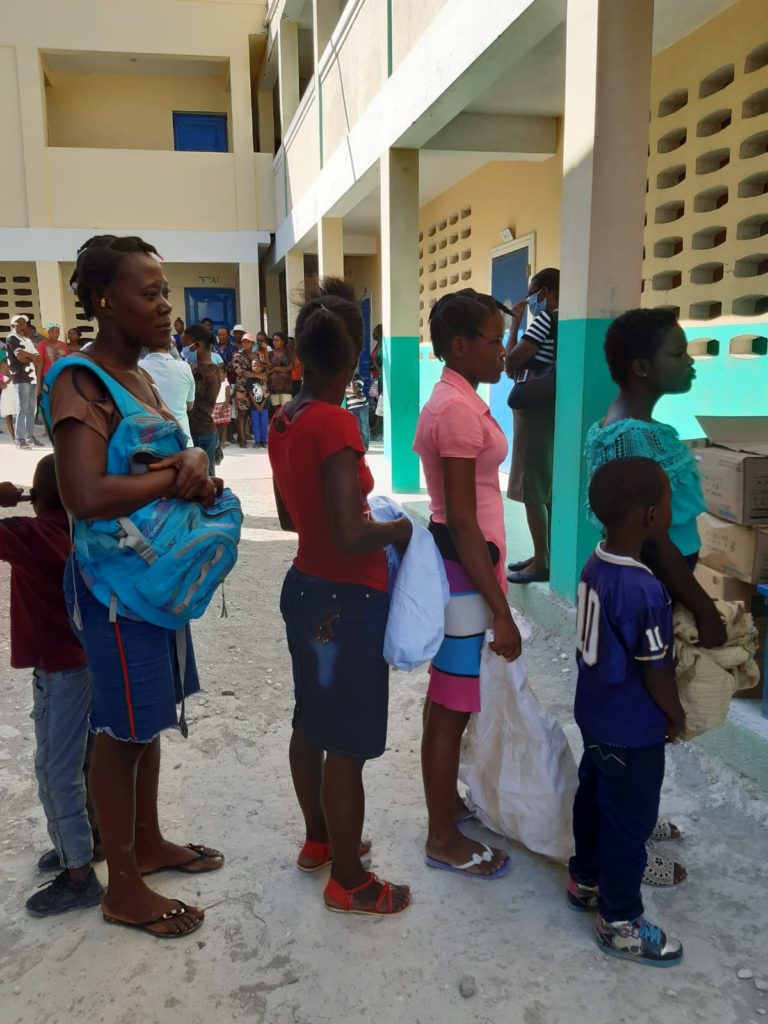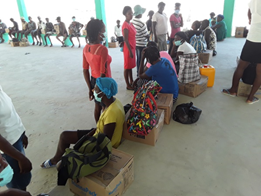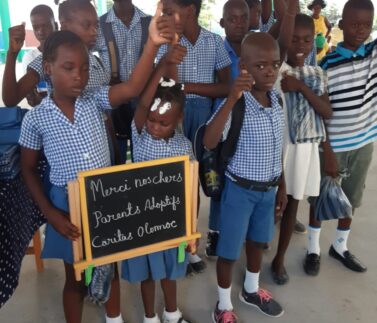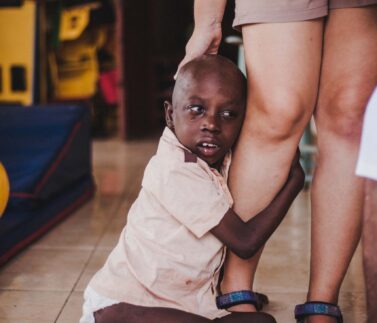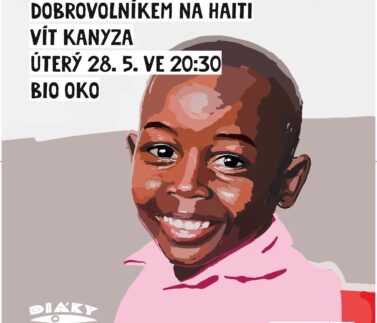
Life in Haiti with coronavirus
What does the current situation in Haiti look like?
The Haitian government is dealing with the coronavirus situation in a similar way to ours. The country has declared a state of emergency, its borders are closed and cross-border passenger traffic is restricted. People should stay at home, not associate, observe hygiene regulations and, for example, fishing, hunting and game hunting are prohibited. In some of the poorest slums, it is not possible to physically observe the obligatory interpersonal distance. However, not everyone follows international news, and they do not believe in the existence of an invisible killer. It happens that they normally visit their infected relatives in hospital isolation, socialize with their relatives or travel in crowded public transport whose drivers refuse to disinfect the vehicles. This was also helped by the government’s hasty decision of 15 April 2020, which declared victory in the fight against coronavirus. Which, following an increase in the number of infected, had to withdraw, and extend the state of emergency until May 20, 2020.
Since mid-March 2020, 6 people have undergone coronavirus, 7 have been cured, 214 are in hospital and 410 are in domestic quarantine. The hardest hit is the capital, Port au Prince, where the government cleans the streets by spraying chlorinated water. There are officially three isolation and care centers in the country: The Sacred Heart Hospital (near Cap-Haïtien, northwest), the Mirebalais University Hospital (central Haiti) and the Saint Luc de Tabarre Hospital (capital of Port au Prince). Private hospitals in large cities also took part in the assistance. However, despite the support of the government and intergovernmental health organizations, there is a shortage of medicines, medical supplies and protective equipment.
Is the food crisis lasting in Haiti?
Yes. According to the United Nations World Food Fund, 1 million Haitians suffer from acute hunger and 4 million need food aid. And if people are forced to stay at home, not go farming or take care of their cattle, they are hungry. Therefore, it often happens that they violate curfew regulations in order to secure their livelihood.
Where do people get food?
In rural and remote areas, livelihoods are still the same. Fruits and vegetables from local fields, fish from the sea, bread pancakes made on fire and an exchange shop with plant and animal products (beans, rice, goats, etc.) with neighbours. Often families also support each other, cook together for more families and take turns in this community support. There is a market where local women usually sell fruits and vegetables and a few other foods and goods. There is also a larger shop (it can be imagined as a small stone shop in our country). It is very well equipped, because it contains almost everything from food to the drugstore (of course in much smaller quantities than in our country), but very good for Haitian conditions. And then there’s another small shop by the playground in front of the church, made from a container, so more like a stall. They only have drinks in it (beer, cola, and some small sweets). The local lady who owns it also occasionally cooks fried bananas or other treats outside the fireplace, and sells them as well. It is imported here mainly from Gonaives (ie first from Porto au Prince to Gonaives and then on here). So when a truck with supplies comes to them from time to time, they usually find that food prices have risen with the rising crisis. Now a large bag of rice costs 4,000 HTG (450 HTG a year ago), a bag of peas 5,500 HTG (1,245 HTG a year ago) and, for example, a can of 4,500 HTG herring (3,500 HTG a year ago).
The situation is similar in the villages of Roche and Bateau, where, from the point of view of food retrieval, it is more of a neighbourhood exchange of crops, which will complement a possible small shop in the village square than well-stocked retail chains.
In Gonaïves, the second largest city in Haiti, the disease is threatened both by contact with people from the capital and by greater movement of people, the situation is different. Typical markets still operate here, limited to three days a week. And also, some shops, which function more like a counter in front of the store. But food is on average 30-100% more expensive than a year ago at this time. Because the country’s airports do not operate, and the country is dependent on food imports from the Dominican Republic or shipping, in addition to its own production, raw material prices are rising rapidly. The government and the FAES program support 150 community restaurants, where meals are cooked under strict hygienic conditions, and served to the poorest and most vulnerable residents for 10 HTG (approximately CZK 2.50). They also distribute rations of dry and dried foods. Sisters from our partner organization in Gonaïves distribute food from their warehouses to needy people on their premises.
Do people have enough soaps, disinfectants and protective equipment?
The government, along with local technology companies, distributed $ 500,000 in soap and disinfectants. These went not only to the affected areas around the capital, but also to the cut-off areas. The media runs tutorials on proper hand washing. Where soap runs out, people use vinegar to sanitize.
What will happen to the money for this school semester when the schools are closed?
Money for adoptive children for this remains with our partners. Most of them go to the purchase of food, hygiene and disinfectant material in the fight against the coronavirus and food crisis. And all teachers are still paid from them. The saved part will be transferred to the next six months.
What will happen to the school year when schools are closed?
The government has decided that first- to third-graders advance to the next grade automatically next year. Older students have not yet been decided. The final exams for primary and secondary schools are likely to be postponed.
How are the children in adoption?
We communicate with partners daily. So far, we have no news that anyone in any of the four hundred families included in the adoption project or their surroundings would be infected. Of course, as soon as I learn something, I will contact the parents of the adopted child directly and we will work together as far as possible.
What is the security situation in Haiti?
Unfortunately, even the coronavirus infection did not prevent Haitians from continuing unrest. Although they are no longer in the range of several hundred people reading the demonstrations. But people are still being abducted, shops looted and gangs threatening individuals controlling the streets of big cities. Violence is the way Haitians are tackling their misery and poverty, which even today’s era of increased solidarity and interpersonal support has not yet overcome.
Can I do something for children in adoption?
At the moment, my partners and I have not been able to come up with any help other than send them funding for other hygiene and sanitation. Encourage them to sew the veils by hand, and encourage everyone in the program to follow safety precautions. All this with the support of solving the food crisis by purchasing food partners in Haiti and distributing them to children in the program. If you want to help, you can send any amount to our account 43-9935450227 / 0100 with the variable symbol 99999. I will then arrange for its transfer to Haiti.
And I would also like you to send me words of support for our children and their families and teachers that I will pass on to Haiti. I realize that contact has been minimal over the last year, and it bothers me. However, it is not in my power to mediate contact with all of the four hundred children in a country with limited mobility. But I can put together all our words of desire for support and prayer and forward them to our partners. And in return, I will try to get a few lines from them for you (although now it’s hardly possible from children). You can send your words of thanks, support, belonging or just a wish for good health to my e-mail: lada.matyasova@acho.charita.cz
Sources: news OCHA Haiti, HaitiLibre, BBC news, Miami Herald, France24 and communication with our partners in Haiti
Lada Matyášová, Archdiocesan Charity Olomouc

